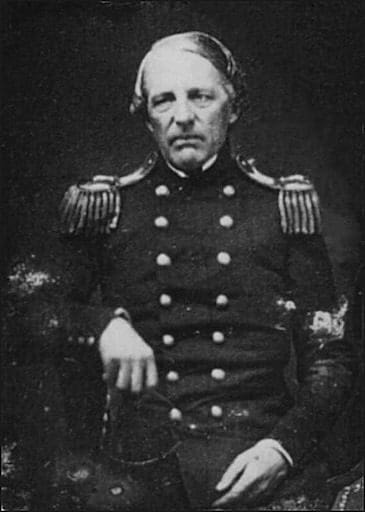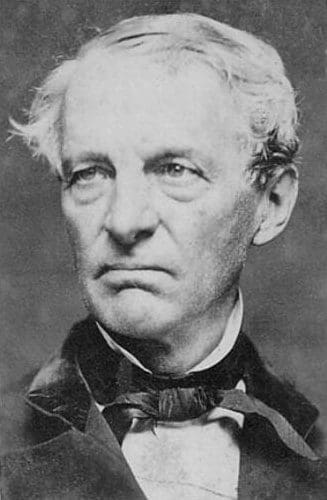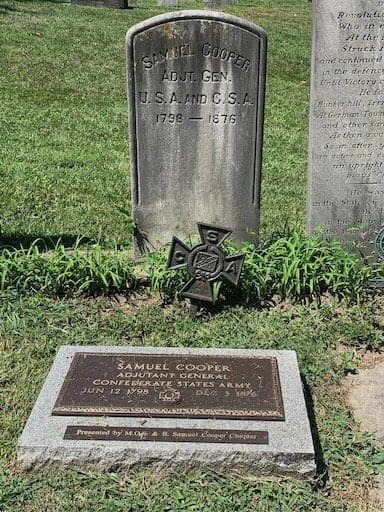Samuel Cooper Confederate General: A Complex Legacy
Few figures in American military history embody the complexities of loyalty and leadership like Samuel Cooper, a Confederate General whose legacy reflects the turbulent times of the Civil War. Born on June 12, 1798, in Dutchess County, New York, he began his military career as a U.S. Army officer after graduating from the United States Military Academy in 1815. Later, he became the highest-ranking officer in the Confederate Army during the Civil War, serving as its Adjutant and Inspector General. His life offers a fascinating lens through which to examine one of the most turbulent periods in American history.
Early Life of Samuel Cooper Confederate General
Samuel Cooper was the son of Major Samuel Cooper, a Revolutionary War veteran who participated in the Boston Tea Party at 16. This patriotic heritage inspired young Samuel to pursue a military career. He entered the United States Military Academy, graduating in 1815. His early military career laid the groundwork for decades of service, during which he became a respected figure in both the U.S. Army and, later, the Confederate forces.
Marriage and Family of Samuel Cooper, Confederate General
In 1827, Samuel Cooper married Sarah Maria Mason, forging a connection with one of America’s most prominent families. Sarah was the daughter of General John Mason and the great-granddaughter of George Mason IV, a Founding Father and author of the Virginia Declaration of Rights. The couple settled in Cameron, near Alexandria, Virginia, and raised three children: Sarah Maria, Samuel Jr., and Virginia Mason.
This marriage tied Cooper to a legacy of American patriotism and deepened his connection to Virginia. This factor likely influenced his eventual allegiance to the Confederacy during the Civil War.
A Distinguished Career in the U.S. Army

Cooper steadily climbed the ranks of the U.S. Army. By 1852, he had achieved the rank of Colonel and was appointed Adjutant General of the U.S. Army, which placed him in charge of personnel management and administrative tasks. Over the years, he served as chief clerk of the War Department and assistant adjutant general. His leadership during the Second Seminole War and the Mexican-American War showcased his exceptional organizational skills and dedication to the military.
Samuel Cooper Confederate General: From U.S. Army Officer to Confederate Leader
Samuel Cooper faced a profound and difficult choice in March 1861 when he resigned from the U.S. Army and aligned himself with the Confederacy. His decision was influenced by his ties to Virginia, his adopted home, and his marriage into the Mason family. This pivotal moment set him on the path to becoming one of the most significant figures in the Confederate military.
The Role of Samuel Cooper, Confederate General in the Civil War
Upon joining the Confederacy, Samuel Cooper was appointed Brigadier General, Adjutant, and Inspector General. By 1862, he had been promoted to Full General, the highest rank in the Confederate Army, reporting directly to Jefferson Davis. While Cooper did not lead troops in the field, his meticulous planning and administrative expertise were critical to sustaining the Confederate war effort.
However, Cooper’s role was not without controversy. In August 1862, under his direction, orders were issued declaring that any African Americans, referred to as “contraband,” who joined the Union Army would face “summary execution” if captured. Additionally, Union officers commanding black troops were to be “executed as felons.” These harsh directives underscored the Confederacy’s determination to suppress challenges to its system of slavery and added a grim layer to Cooper’s legacy as the Confederacy’s chief administrator. Readers can learn more about contrabands and their legacy by visiting From Battlefield to Burial Ground: The USCT’s Fight for Equality at Alexandria National Cemetery.
While his administrative skills kept the Confederate Army operational during a time of limited resources, these policies reveal his role’s moral complexities and dark realities. They serve as a stark reminder of the Confederacy’s unwavering commitment to maintaining the institution of slavery.
A Controversial Legacy in the Civil War
Samuel Cooper’s legacy as a Confederate General is complex. On one hand, his administrative skills kept the Confederate Army operational during a time of limited resources. On the other, his role in enforcing policies to uphold slavery has cast a shadow over his historical contributions. His work exemplifies the deep moral and political divides that defined the Civil War era.
Surrender and Preservation of Records
As Richmond fell on April 2, 1865, Samuel Cooper joined Jefferson Davis and other members of the Confederate leadership in fleeing the capital. The group initially traveled south, determined to sustain the government’s operations despite the Confederacy’s imminent collapse. However, the leadership split up during the retreat, with Cooper’s group eventually parting ways from Davis’s. Reflecting on this separation, Davis later remarked: “He took with him such books and papers as were indispensable, and although worn down by incessant labor, never relaxed his attention to the functions of his office until disease compelled him to confess his inability to continue the retreat. The affection, honor, and the confidence with which I regarded him made our parting a sorrowful one, under circumstances so hard for us both” (O’Brien, 2018, p. 71).
On May 3, 1865, Cooper surrendered to federal authorities in Charlotte, North Carolina. In an act of historical importance, he turned over extensive documents—the official records of the Confederate government. Historians regard these papers as some of the most important primary sources to survive the Civil War, providing invaluable insights into the inner workings of the Confederacy. Meanwhile, Jefferson Davis continued his flight further south, only to be captured a week later, on May 10, 1865, in Irwin County, Georgia.

Samuel Cooper Confederate General: Final Years and Legacy
Life after the war was not kind to Samuel Cooper. Stripped of his wealth and property, he returned to Alexandria, where he lived in reduced circumstances. His original home, known as Cameron, had been destroyed during the war. Union soldiers nicknamed the site “Traitor’s Hill” in response to Cooper’s defection to the Confederacy. The site was leveled to make way for the construction of Fort Williams, one of the forts that formed part of the Defenses of Washington, built to protect Alexandria and the capital during the Civil War. After the destruction of his home, Cooper was housed by friends in a house known as the “Wilderness” at the Virginia Theological Seminary.
Eventually, with the help of his friend W.M. Corcoran—renowned for founding Washington, D.C.’s prestigious art gallery—Cooper was able to recover his estate. Corcoran purchased the property on Cooper’s behalf and added an addition to what had formerly been Cooper’s slave quarters (he had owned at least six slaves) to improve the living conditions (Old Town Crier, 2017). Despite this assistance, Cooper continued to rely on the support of benefactors to make ends meet.
In early May 1869, Robert E. Lee personally called on Cooper during a visit to Alexandria and found the destitute general in need of further support. Lee organized a collection, securing $300 from former Brigadier General Alexander Lawton and others, adding $100 of his own, and sending the sum to Cooper (Kundahl, 2004, p. 49). This gesture illustrates the enduring bonds among Confederate veterans as they navigated the hardships of post-war life.
Despite his significant contributions to both the U.S. and Confederate Armies, Cooper never regained his United States citizenship. In 1866, his name appeared in Harper’s History of the Great Rebellion, where he was labeled a traitor—an indication of the lingering divisions in post-war America.
Legacy and Resting Place
Samuel Cooper died on December 3, 1876, in his hillside home in Alexandria. He was laid to rest in Christ Church Cemetery, a historic site that reflects the area’s rich history. Interestingly, Cooper is buried beside his father, Major Samuel Cooper. His remarkable legacy includes participating in the Boston Tea Party at just 16 years old, a bold act connecting the Cooper family to the nation’s founding. This connection between father and son bridges two pivotal periods in American history—the Revolutionary War and the Civil War. Next to General Cooper lies his wife, Sarah Maria Mason, a descendant of George Mason IV, and their son, Major Samuel Cooper, C.S.A. This family burial plot reflects the Cooper family’s prominence and struggles during the 19th century.
Samuel Cooper’s life, marked by military distinction, deep loyalty to his chosen causes, and personal hardship, offers a poignant lens through which to view the complexities of the Civil War era and its aftermath. Though his actions and decisions continue to spark debate, Samuel Cooper’s story underscores the profound impact of personal choices during one of the most tumultuous periods in U.S. history.

| SAMUEL COOPER Adgt. Gen. U.S.A. and C.S.A. 1798 – 1876 |
Sources of Information
Coleman, D. (2017, March 1). Traitor’s Hill. Old Town Crier. https://oldtowncrier.com/2017/03/01/traitors-hill/
Cooling, B. F., III, & Owen, W. H., II. (1988). Mr. Lincoln’s fort: A guide to the Civil War defenses of Washington. Shippensburg, PA: White Mane Publishing Company.
Hakenson, D. C. (2011). This Forgotten Land Volume II, Biographical Sketches of Confederate Veterans Buried in Alexandria, Virginia. Self-published: Alexandria, Virginia.
Kundahl, G. G. (2004). Alexandria goes to war: Beyond Robert E. Lee. Knoxville, TN: The University of Tennessee Press.
Miller, D. V. (1976). The defenses of Washington during the Civil War. Buffalo, NY: Mr. Copy, Inc.
O’Brien, J. (2018). Rare Profile Portrait of the Confederacy’s First General. Military Images, 36(1), 70–71. http://www.jstor.org/stable/26240170
Pippenger, W. E. (1992). Tombstone Inscriptions of Alexandria, VA (Volume 3). Family Line Publications: Westminster, Maryland.